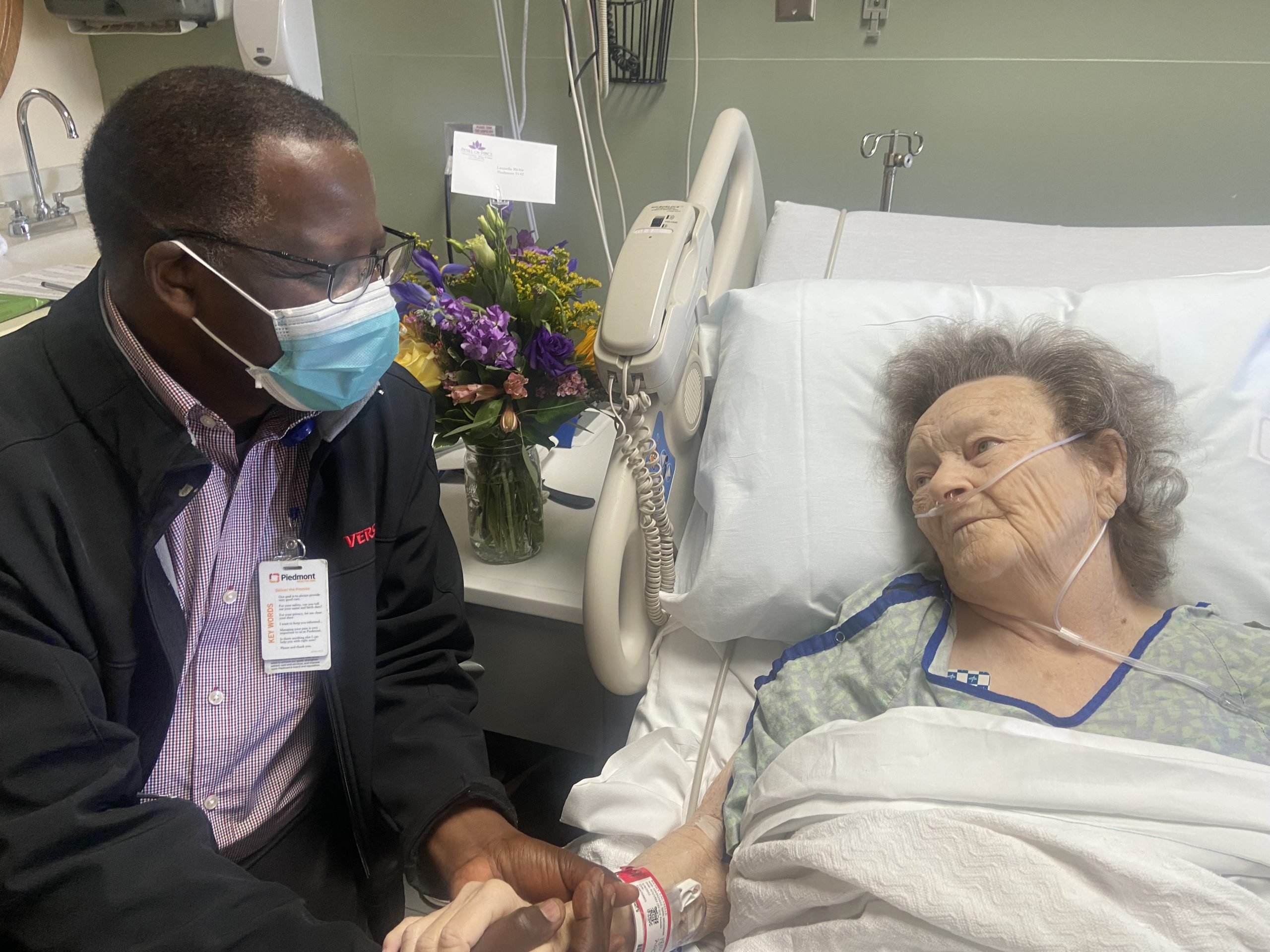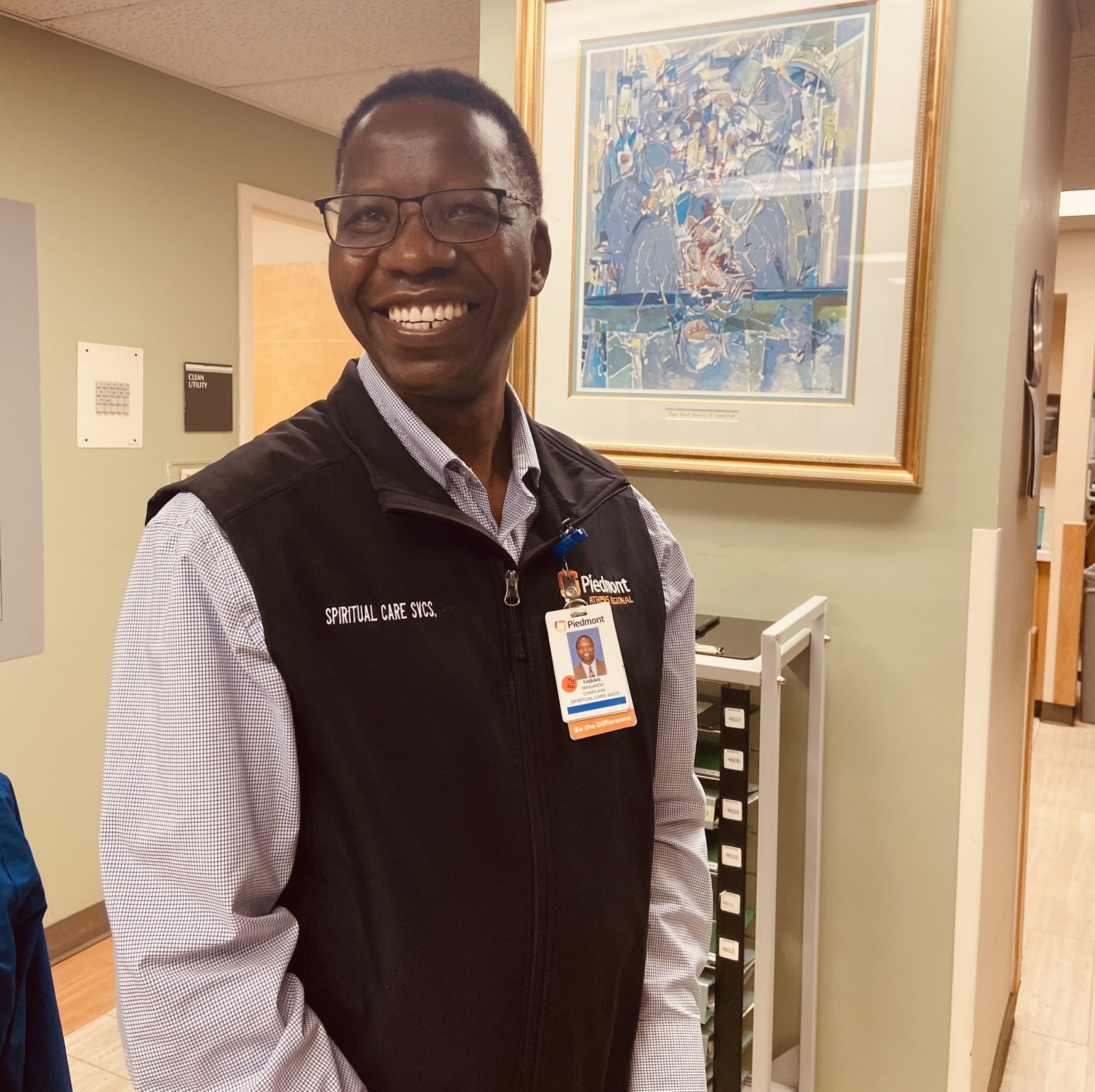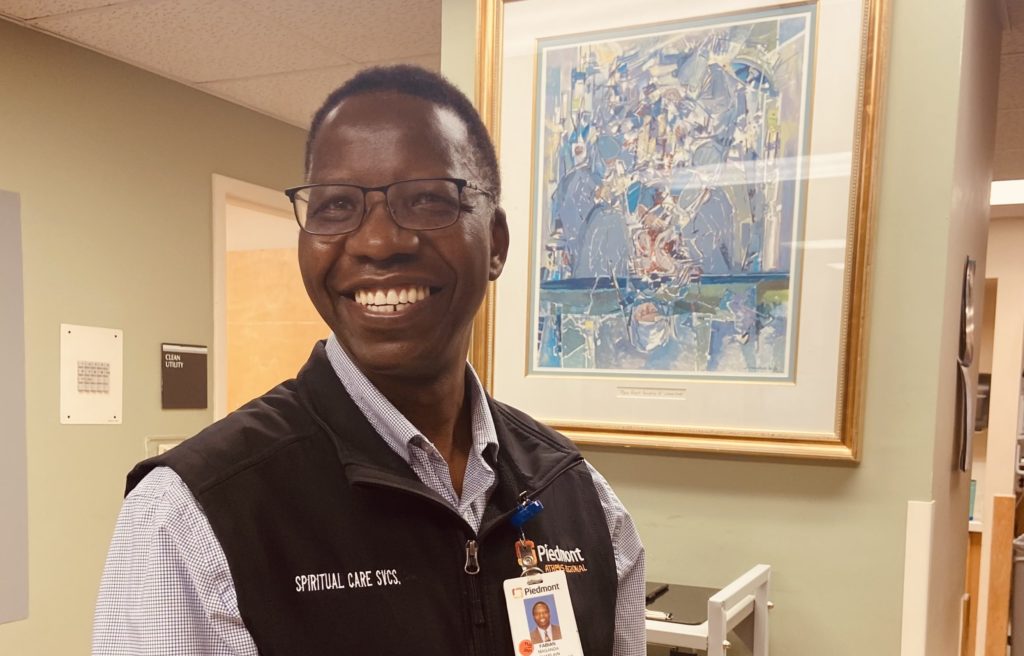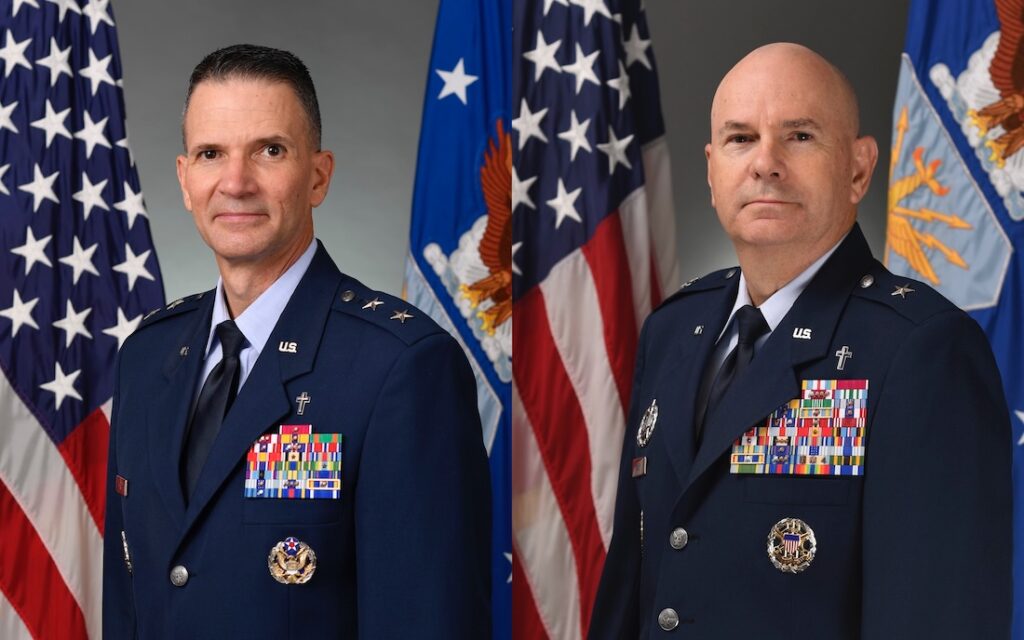
Southern Baptists have 684 endorsed health care chaplains serving throughout North America, many of whom served on the front lines of the COVID-19 pandemic.
Even with full effect quarantine measures and complete personal protective equipment (PPE), SBC hospital chaplains answered the call risking constant exposure to pandemic patients. They served diligently to ensure people had hope and care amid all the challenges and fears COVID created.
Hospital chaplains do more than just provide care for hurting people. They serve patients and visitors as they listen and offer spiritual and emotional support. They also accompany those in crisis or grief. And they share prayer and encouragement and have a constant “ministry of presence,” helping hospital patients reflect and process dark circumstances.
Fabian Maganda, chaplain at Piedmont Athens Regional Hospital in Athens, Georgia, understands challenging and dark times very well.

In the early years of his life in Tanzania, Africa, Maganda was convinced his future was as a professional soccer player. At that time, he didn’t know anything about chaplaincy ministry, and he remembers his father, a pastor, telling him, “You know my son, I see you have all the character traits of a pastor.”
Maganda stayed on course and pursued a career in soccer.
“In my early twenties, I quickly realized soccer was not my calling. So, I started aspiring to become an economist,” he said. “While in college studying, I had my Damascus Road experience. My world turned upside down, and I heard God’s calling to pursue full-time pastoral ministry.”
Without hesitation, Maganda surrendered, and after 10 years of pastoral and teaching ministry in Tanzania, he decided to pursue further studies in the U.S.
Maganda began his studies at Columbia International University. A few months after his wife, Dainess, arrived in the U.S., she suffered a terrible car accident that paralyzed her.
There at the hospital in Columbia, South Carolina, Maganda and Dainess sat across from a hospital chaplain who talked through the spiritual and emotional sorrows of experiencing this kind of trauma and darkness.
The chaplain offered them comfort amid their pain. He prayed with the young couple, leaving them “profoundly touched.”
Maganda and Dainess never forgot it.
God’s care, he said, “came in the form of compassion and love given to us by the chaplains at the hospital. It came in the form of care we received from our family members, in the form of constant visits and support from our Christian friends.”
Maganda says these acts of kindness and concern saturated their lives and gave them the courage to go on with life.
“That experience simmered in my mind and heart for a long time until I finally began to wonder if I could consider chaplaincy as part of my pastoral ministry.”
His wife’s doctor encouraged Maganda to stay longer in the U.S. to allow his wife to receive the medical care unavailable in his home country.
“So, I started teaching at the University of South Carolina and, at the same time, serving the Lord as an associate pastor at First North East Baptist Church,” said Maganda.
Their stay in Columbia initially ended in 2012 when Dainess completed her studies and received a position at the University of Georgia in Athens, Georgia,—a job she wanted because it allowed her to travel to Tanzania every year.
“The only job and ministry opportunity available for me in Athens was the chaplaincy position at Piedmont Athens Regional. I believe God used our experiences to prepare me for the position I currently hold,” said Maganda.
For that reason, when the COVID-19 cases continued to rise, Maganda’s core work with patient care remained the same — done with increased safety in mind.
Instead of bedside visits, he connected with patients over video. Maganda knew that even though he tried to put on a brave face, the loneliness of his clients made him feel “helpless and sad.” And yet it also motivated him to check in with others more frequently, counseling them through tremendous grief.
“In my daily ministry at Piedmont Athens hospital, I consider myself, as many have said, like a donkey carrying God’s love and mercy. I bring hope when I enter the room of a dying father or sit with two daughters whose mother is having open-heart surgery. Chaplains provide care and hope when they encounter a patient who questions God about their illness or when they meet with the nurses or doctors experiencing exhaustion because of the constant care they gave to all their COVID-19 patients,” he said.
Maganda drew on his faith to provide the same support he and his wife had many years ago to guide patients, their loved ones and their caretakers through the pandemic challenges.
He offered prayer and counseled those struggling with loss, injury or illness. He connected people with others and above all, he remained a nurturing and calm presence within the high-stress environment and darkness that almost all crises bring.
“As many like to say,” Maganda said. “We chaplains walk into some dark places and help bring light to our patients and their loved ones.”
Published September 21, 2022



